Restless 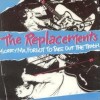
The first time I heard The Replacements was when my brother gave me a ride to school when I was in junior high, and he played a few tracks off of "Don't Tell a Soul," their almost unanimously reviled penultimate release. I remember being drawn in by the melodies, the quirky Westerberg lyrics, and the almost sloppy nature of it all. Plus, my brother and his friend liked it, and I was a total joiner back then. Years later, as my taste and interest in music improved, I started to look for more Replacements records, only to be disappointed by the lack of them in my record stores, and the apparent inability to order them because they were out of print. This was particularly true of their early output on TwinTone, which you could special order, but it was anyone's guess as to whether or not you would get it. Now, Restless Records is remedying that, albeit controversially, it seems.

The Replacements were never fond of the concept of CDs, as in the story of them trying to destroy their back catalog when they heard that TwinTone was releasing their albums on CD. As it turns out, they only succeeded in destroying the safety copies of the masters, so these Restless reissues of their first four albums are digitally remastered from the original tapes. Reportedly, the surviving members (original guitarist Bob Stinson died in 1995 of a drug overdose) are again not pleased by this project, with Westerberg even saying he was never asked for permission, and since they had no contract with TwinTone they have none with Restless so he might legally contest the pressings. Nevertheless, it is an opportunity for new audiences to hear The 'Mats, arguably the best rock band of the '80s (I still say it was Oingo Boingo. Sorry.) And what will those listeners hear? Probably the sloppiest, poorest recordings of a rock band in its infancy, but some really amazing songs. Is the sound quality all that different from the original CD releases on TwinTone? Nope. So if you have them already, folks, don't bother with these. However, for indie rock from Minneapolis in the '80s, these albums are pretty damned good.

"Sorry Ma" is the quickest and most disposable listen, with the band rocking through eighteen songs at an average of two minutes per song. It's almost The Replacements tribute to hardcore, but it's not in any way an indication of the quality of output they would produce on future records. Completists will love it for 'I Hate Music', 'Shiftless When Idle', and other catchy tunes, but for first time listeners, avoid. The real prize release is "Stink", with the hit potential of 'Fuck School' and 'Dope Smokin' Moron'. It's a raucous, quick record, as well, but it shows an emotional depth on select tracks, most notably 'Go'. Westerberg finally touches on the area he continues to mine today: love and the fear of loss. There's still a lot of edgy noise in their sound, like they want to be a punk band but just aren't good enough, but it's a fun listen for Bob Stinson's guitar antics, and Westerberg's painful vocals.
"Hootenanny" is where their sound really took off, with most of the hard, angry energy missing in favor of earnest songwriting. There are still some quickies, but with tracks like 'Willpower' and 'Within Your Reach' the band was starting to show potential. Westerberg's lyrics were improving, the band was getting tighter, and you can really hear that this was what they wanted more than anything. Which leads to "Let It Be".

Come on, how ballsy is that? They named an album "Let It Be". Were they trying to draw comparisons that are completely unwarranted? Were they just fans of the Beatles and decided to call a record after one of their favorite tracks? Or were they shoving it in the Fab Four's face, saying their era was over and it was time for a new one? My guess it the ladder, though I'm sure the band won't say. "Let It Be" is the best Replacements record: the most cohesive, the most original, and the most impressive. 'I Will Dare', 'Androgynous', 'Unsatisfied', 'Black Diamond, 'Answering Machine'; these are all classic songs for this or any band. The fun-loving spirit is still there, on 'Tommy Gets His Tonsils Out' and 'Gary's Got a Boner', but mostly the maturity of the band is starting to show. Westerberg actually sings, and plays piano. The music has come into its own, with the band improving their arrangements and musicianship. Peter Buck from REM contributes a guitar solo. It's just a great record. Of all of these, it's the one to own, and now's your chance. Then again, if you've never liked The Replacements, never mind. You still won't.
samples:
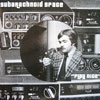 Terrastock 5 was an outrageous weekend-long nostalgia fest. By the evening of Sunday I'd really had enough of musty old psychedelic rock. The day had been disappointing. I was mostly hanging out at the bar, happy for any distraction from the music that came my way when suddenly, in the middle of it all, SubArachnoid Space made my day. They punched through all the dross, chatter, space and bodies and captivated my attention. At last, here was the prog rock aesthetic demonstrating its superior durability by sweeping away all the psych cobwebs of the weekend. Despite some technical issues, their sound was excellent—very loud but tight, punchy and clear. The first rate drumming, which reminded me of Police-era Stuart Copeland and of Trans Am's second album, combined with massive wedges of bass (sufficient to cause a perceptible draft) to lay down the groove while ingenious guitar figures and washes filled out the well delineated compositions. This was so good that, in a guilty, devil-may-care frame of mind, I broke the terms of my unemployment and bought a couple of their CDs. The first, "These Things Take Time" on Release was recorded live at KFJC in Silicon Valley in 1999 and the second "Play Nice" is a self-released 2002 tour CDR comprising bootleg-quality recordings from rehearsals and concerts. To be candid, if SubArachnoid had played like they did on these CDs in their T5 set, I wouldn't have bought any CDs. "Play Nice" holds some of live set's powers (check the samples) but overall the material is, unfortunately, much more psych than it is prog. While SubArachnoid's set at T5 was (blessedly) on the fringes, the music on these CDs would have been right in the middle of the T5 spectrum, almost definitive: lugubrious noodling jams with lashings of space echo on the guitar — pleasant enough in their own right, sometimes breaking the barrier into interesting, a long way from being enthralling and almost memorable. The good news is that SubArachnoid Space are working on a new album.
Terrastock 5 was an outrageous weekend-long nostalgia fest. By the evening of Sunday I'd really had enough of musty old psychedelic rock. The day had been disappointing. I was mostly hanging out at the bar, happy for any distraction from the music that came my way when suddenly, in the middle of it all, SubArachnoid Space made my day. They punched through all the dross, chatter, space and bodies and captivated my attention. At last, here was the prog rock aesthetic demonstrating its superior durability by sweeping away all the psych cobwebs of the weekend. Despite some technical issues, their sound was excellent—very loud but tight, punchy and clear. The first rate drumming, which reminded me of Police-era Stuart Copeland and of Trans Am's second album, combined with massive wedges of bass (sufficient to cause a perceptible draft) to lay down the groove while ingenious guitar figures and washes filled out the well delineated compositions. This was so good that, in a guilty, devil-may-care frame of mind, I broke the terms of my unemployment and bought a couple of their CDs. The first, "These Things Take Time" on Release was recorded live at KFJC in Silicon Valley in 1999 and the second "Play Nice" is a self-released 2002 tour CDR comprising bootleg-quality recordings from rehearsals and concerts. To be candid, if SubArachnoid had played like they did on these CDs in their T5 set, I wouldn't have bought any CDs. "Play Nice" holds some of live set's powers (check the samples) but overall the material is, unfortunately, much more psych than it is prog. While SubArachnoid's set at T5 was (blessedly) on the fringes, the music on these CDs would have been right in the middle of the T5 spectrum, almost definitive: lugubrious noodling jams with lashings of space echo on the guitar — pleasant enough in their own right, sometimes breaking the barrier into interesting, a long way from being enthralling and almost memorable. The good news is that SubArachnoid Space are working on a new album.

 When Mineral disbanded following the completion of their second record, 'EndSerending,' many fans of their brand of plaintive and emotional rock were stunned and dismayed. In just a short time, Mineral had not only amassed a loyal following and had been courted by a number of major labels—even signing with Virgin but calling it quits before they could record anything—but they had also nearly changed their sound completely. Once a punk-laced energetic emo band like Sunny Day Real Estate, they were now fans of sprawling melodic structures with even more soaring vocals. Founding members Chris Simpson and Jeremy Gomez decided to continue making music together under the moniker The Gloria Record, and released several EPs and singles on Crank!. With this, their first full-length, the Gloria Record accomplishes the same growth in sound Mineral showed from their first LP to 'Endserenading.'
When Mineral disbanded following the completion of their second record, 'EndSerending,' many fans of their brand of plaintive and emotional rock were stunned and dismayed. In just a short time, Mineral had not only amassed a loyal following and had been courted by a number of major labels—even signing with Virgin but calling it quits before they could record anything—but they had also nearly changed their sound completely. Once a punk-laced energetic emo band like Sunny Day Real Estate, they were now fans of sprawling melodic structures with even more soaring vocals. Founding members Chris Simpson and Jeremy Gomez decided to continue making music together under the moniker The Gloria Record, and released several EPs and singles on Crank!. With this, their first full-length, the Gloria Record accomplishes the same growth in sound Mineral showed from their first LP to 'Endserenading.' For their second release, this Montreal-based drum, bass, and tape trio has mellowed out their punk-influenced musical assault, and have somewhat filled the space with a wider variety of sounds and techniques. The result is a diverse collage of musique concrete- and beatbox-inspired instrumentals. Throughout the album, the musicians stay true to their rock roots. Even when bits of DSP are employed, the overall sound is stripped-down and unpretentious. "Gauss" opens the album with some low bass and brooding bass clarinet, establishing the album's stark and gloomy mood. Most of the songs combine a slow, moaning, three- or four-note bassline with some solid mid-tempo breakbeat drumming and noisy tape and computer processing. "Voiceboxed" is an excellent track; it is propelled forward by a repeating one-note guitar part (played by Mike Moya of Hrsta) and reel-to-reel tape manipulations, while some well-crafted digital effects shift in and out. "Ice Storm" starts as a semi-interesting medley of instrument cable buzzes and intermittent static; a downtempo beat and some clarinet emerge for a while but then the piece gets quiet and abstract again for the last minute. "My Country Is Winter" has an almost hip-hop beat and one of the better bass melodies as all manners of tape noises and strange electronic sounds whirl about. Exhaust have used the studio effectively in constructing this album; at various points the drums cut out and are seamlessly replaced or augmented by filtered and machine-produced rhythms. The reel-to-reel tapes were my favorite part of Exhaust's debut, and that element isn't as high-profile as I would have liked this time around, but there's so much more detail and variety of sound on this album that it definitely deserves a closer listen than its predecessor. The mixing of organic rock instrumentation with more abstract electronic elements makes 'Enregistreur' an entertaining and interesting release.
For their second release, this Montreal-based drum, bass, and tape trio has mellowed out their punk-influenced musical assault, and have somewhat filled the space with a wider variety of sounds and techniques. The result is a diverse collage of musique concrete- and beatbox-inspired instrumentals. Throughout the album, the musicians stay true to their rock roots. Even when bits of DSP are employed, the overall sound is stripped-down and unpretentious. "Gauss" opens the album with some low bass and brooding bass clarinet, establishing the album's stark and gloomy mood. Most of the songs combine a slow, moaning, three- or four-note bassline with some solid mid-tempo breakbeat drumming and noisy tape and computer processing. "Voiceboxed" is an excellent track; it is propelled forward by a repeating one-note guitar part (played by Mike Moya of Hrsta) and reel-to-reel tape manipulations, while some well-crafted digital effects shift in and out. "Ice Storm" starts as a semi-interesting medley of instrument cable buzzes and intermittent static; a downtempo beat and some clarinet emerge for a while but then the piece gets quiet and abstract again for the last minute. "My Country Is Winter" has an almost hip-hop beat and one of the better bass melodies as all manners of tape noises and strange electronic sounds whirl about. Exhaust have used the studio effectively in constructing this album; at various points the drums cut out and are seamlessly replaced or augmented by filtered and machine-produced rhythms. The reel-to-reel tapes were my favorite part of Exhaust's debut, and that element isn't as high-profile as I would have liked this time around, but there's so much more detail and variety of sound on this album that it definitely deserves a closer listen than its predecessor. The mixing of organic rock instrumentation with more abstract electronic elements makes 'Enregistreur' an entertaining and interesting release. Upon first listen, the latest full length release from the sunshine state's The Mercury Program comes across as an homage to Tortoise's 'Millions Now Living...' due in part to the liberal use of vibraphone, hypnotic arrangements and a firmly rooted rhythm section. After putting aside the fact that the vibraphone had been around for quite some time before 1996, and several more listens, it's apparent that these guys are more at home with prog rock than say, post rock, for lack of a better term. Guitarist Tom Reno perfectly blends the Fripp/Belew sound of 80s King Crimson with the style of Will Sergeant. The multi-faceted drumming of Dave Lebleu is made melodic through Sander Travisano's solid, yet understated bassline translations. For me, what makes this disc is the electric piano provided by newest member Whit Travisano. You just can't go wrong with a Fender Rhodes these days. There being raised level of musicianship, the tunes can be somewhat lengthy with a fair bit of repetition in order for the exchange between the players to gel. This leads to some clever compositions which push their own boundaries. With all the elements that personally make for a satisfying listen, the unfortunate thing is that I don't find myself being too emotionally involved in what should otherwise be a great disc. Perhaps it's more of a live thing.
Upon first listen, the latest full length release from the sunshine state's The Mercury Program comes across as an homage to Tortoise's 'Millions Now Living...' due in part to the liberal use of vibraphone, hypnotic arrangements and a firmly rooted rhythm section. After putting aside the fact that the vibraphone had been around for quite some time before 1996, and several more listens, it's apparent that these guys are more at home with prog rock than say, post rock, for lack of a better term. Guitarist Tom Reno perfectly blends the Fripp/Belew sound of 80s King Crimson with the style of Will Sergeant. The multi-faceted drumming of Dave Lebleu is made melodic through Sander Travisano's solid, yet understated bassline translations. For me, what makes this disc is the electric piano provided by newest member Whit Travisano. You just can't go wrong with a Fender Rhodes these days. There being raised level of musicianship, the tunes can be somewhat lengthy with a fair bit of repetition in order for the exchange between the players to gel. This leads to some clever compositions which push their own boundaries. With all the elements that personally make for a satisfying listen, the unfortunate thing is that I don't find myself being too emotionally involved in what should otherwise be a great disc. Perhaps it's more of a live thing. It's a frigid and sleepless December night. I'm sitting in the darkness on the floor in the living room across from the tall, stoic fir tree, watching the metal ornaments on its branches shoot brief, brilliant sparks of light when cars pass, flashing their headlights through the front window. This is the experience of listening to 'Model 91', the debut album from Brooklyn duo Christmas Decorations. Using an ad hoc aesthetic built on the band's improv background, Steven Silverstein and Nick Forte create patient melodies that are much more sincere and approachable than the modern electronic composors from whom they draw their influence. The thumpy, low basslines on tracks such as "Brittle Stem" recall Graham Lewis' post-Wire recordings for 4AD, and the band's use of primitive digital sequencers contribute further to the early '80s feel of 'Model 91.' "Small Window" sounds like a computer on life support being gently nursed by the ambient guitar and bass. The vocals featured on several of the tracks are approriately monotone and disjointed (to the point of being potentially off-putting to the listener), but without sounding disaffected. Christmas Decorations are surely one of the most innovative new bands to appear this year, with their refreshingly raw, yet concise sound and bold approach.
It's a frigid and sleepless December night. I'm sitting in the darkness on the floor in the living room across from the tall, stoic fir tree, watching the metal ornaments on its branches shoot brief, brilliant sparks of light when cars pass, flashing their headlights through the front window. This is the experience of listening to 'Model 91', the debut album from Brooklyn duo Christmas Decorations. Using an ad hoc aesthetic built on the band's improv background, Steven Silverstein and Nick Forte create patient melodies that are much more sincere and approachable than the modern electronic composors from whom they draw their influence. The thumpy, low basslines on tracks such as "Brittle Stem" recall Graham Lewis' post-Wire recordings for 4AD, and the band's use of primitive digital sequencers contribute further to the early '80s feel of 'Model 91.' "Small Window" sounds like a computer on life support being gently nursed by the ambient guitar and bass. The vocals featured on several of the tracks are approriately monotone and disjointed (to the point of being potentially off-putting to the listener), but without sounding disaffected. Christmas Decorations are surely one of the most innovative new bands to appear this year, with their refreshingly raw, yet concise sound and bold approach. Although 'This Night' features a number of solidly written songs, this extremely production-heavy album emphasizes its faux-velvet-bell-bottom-wearin'-chamber-pop sound so forcefully—to the point of being tedious—that even those who acclimate will probably remain disgruntled.
Although 'This Night' features a number of solidly written songs, this extremely production-heavy album emphasizes its faux-velvet-bell-bottom-wearin'-chamber-pop sound so forcefully‚Äîto the point of being tedious‚Äîthat even those who acclimate will probably remain disgruntled.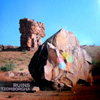 I adore this disc, I really do. Its fifteen studio tracks, mostly between two and three minutes each, are so dizzyingly dense that it will be a long time before I figure it out, if ever. The music is devoted to the prog rock aesthetics of the 70s and 80s and delivered with Japanese values of painstaking design, utilitarian efficiency, precision execution and quality. But I have some confidence in Tzomborgha's endurance since a) I always loved prog despite my self-consciousness over its profound unfasionability through the 80s (hatred and denunciation of prog was a tenet of 80s British music journalism), and b) much of the material is based on favorites from various periods of my youth: Crimson (70s and Discipline, yae!), Sabbath, Olivier Messiaen and John McLaughlin. The Mahavishnu and Sabbath Medleys are spectacular, of course, and fun crossword puzzles for the so inclined, while the Messiaen quotes are very hard to pin down. There's an extended blissed-out jam with pretty vocal and a cloying Fripp-like solo, an exercise in Indian styles, and Magma singing on several cuts (check the samples for each). Yoshida blessedly restrains his goofiest vocal excesses most of the time so there is seldom a feeling of parody. The Ruins have successfully defined and mastered their own mesogenre, put a huge variety of music in it, and made it highly entertaining and credible — a rare achievement of which this CD is a fine exhibit.
I adore this disc, I really do. Its fifteen studio tracks, mostly between two and three minutes each, are so dizzyingly dense that it will be a long time before I figure it out, if ever. The music is devoted to the prog rock aesthetics of the 70s and 80s and delivered with Japanese values of painstaking design, utilitarian efficiency, precision execution and quality. But I have some confidence in Tzomborgha's endurance since a) I always loved prog despite my self-consciousness over its profound unfasionability through the 80s (hatred and denunciation of prog was a tenet of 80s British music journalism), and b) much of the material is based on favorites from various periods of my youth: Crimson (70s and Discipline, yae!), Sabbath, Olivier Messiaen and John McLaughlin. The Mahavishnu and Sabbath Medleys are spectacular, of course, and fun crossword puzzles for the so inclined, while the Messiaen quotes are very hard to pin down. There's an extended blissed-out jam with pretty vocal and a cloying Fripp-like solo, an exercise in Indian styles, and Magma singing on several cuts (check the samples for each). Yoshida blessedly restrains his goofiest vocal excesses most of the time so there is seldom a feeling of parody. The Ruins have successfully defined and mastered their own mesogenre, put a huge variety of music in it, and made it highly entertaining and credible — a rare achievement of which this CD is a fine exhibit. 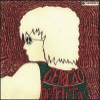 The 1970's Brazilian band Spectrum hailed from the Nova Friburgo region of Rio de Janeiro, which also hosted the well-known Os Mutantes. Spectrum shares a musically similar psychedelic slant with Os Mutantes, but without the refinement and prolificacy of their more famous compatriots. Despite its rough edges, Spectrum's soundtrack for the film 'Geracao Bendita' (The Blessed Generation) compiles a pleasant hodge-podge of 60's psych-influenced sounds which take from just about every band of the psych generation which it ought to. There are elements of the Mamas and the Papas, Simon and Garfunkel, Crosby, Stills, Nash and Young, Blue Cheer, and Jefferson Airplane, all complemented by a general fuzz that hovers throughout the album. There are even some funk sounds starting to creep in (see the beginning of "Pingo e Letra"), it being the 1970's and all. The soundtrack for the film (supposedly the first Brazilian hippie movie) has been out of print for some time now, but Shadoks Music has reissued it with new liner notes and photos. Songs alternate between English and Portuguese; meandering and straight-ahead; female and male vocals; fuzzed out and reverberating. The sound of Spectrum can best be likened to the broken English in which the liner notes are written: you can understand what both are trying to say, but it could be executed more crisply. For instance: "After that, Ramon was attacked by a disease, which made Tiao sacrifice himself in substituting him on the bass, with a lot of study, much devotion, persistence and performance." Unfortunately for Tiao, the persistence and the performance did not pay off, since the band itself had neither persistence nor performance. Spectrum was around for about four years, without ever performing live once as Spectrum. The band which prefigured Spectrum, 2000 Volts, played a number of club shows, as well as birthday parties and schools. 'Geracao Bendita' is a pleasant listen, helped in some part by the economy of the record, which lasts a perfectly allotted thirty minutes.
The 1970's Brazilian band Spectrum hailed from the Nova Friburgo region of Rio de Janeiro, which also hosted the well-known Os Mutantes. Spectrum shares a musically similar psychedelic slant with Os Mutantes, but without the refinement and prolificacy of their more famous compatriots. Despite its rough edges, Spectrum's soundtrack for the film 'Geracao Bendita' (The Blessed Generation) compiles a pleasant hodge-podge of 60's psych-influenced sounds which take from just about every band of the psych generation which it ought to. There are elements of the Mamas and the Papas, Simon and Garfunkel, Crosby, Stills, Nash and Young, Blue Cheer, and Jefferson Airplane, all complemented by a general fuzz that hovers throughout the album. There are even some funk sounds starting to creep in (see the beginning of "Pingo e Letra"), it being the 1970's and all. The soundtrack for the film (supposedly the first Brazilian hippie movie) has been out of print for some time now, but Shadoks Music has reissued it with new liner notes and photos. Songs alternate between English and Portuguese; meandering and straight-ahead; female and male vocals; fuzzed out and reverberating. The sound of Spectrum can best be likened to the broken English in which the liner notes are written: you can understand what both are trying to say, but it could be executed more crisply. For instance: "After that, Ramon was attacked by a disease, which made Tiao sacrifice himself in substituting him on the bass, with a lot of study, much devotion, persistence and performance." Unfortunately for Tiao, the persistence and the performance did not pay off, since the band itself had neither persistence nor performance. Spectrum was around for about four years, without ever performing live once as Spectrum. The band which prefigured Spectrum, 2000 Volts, played a number of club shows, as well as birthday parties and schools. 'Geracao Bendita' is a pleasant listen, helped in some part by the economy of the record, which lasts a perfectly allotted thirty minutes. The first time I heard The Replacements was when my brother gave me a ride to school when I was in junior high, and he played a few tracks off of "Don't Tell a Soul," their almost unanimously reviled penultimate release. I remember being drawn in by the melodies, the quirky Westerberg lyrics, and the almost sloppy nature of it all. Plus, my brother and his friend liked it, and I was a total joiner back then. Years later, as my taste and interest in music improved, I started to look for more Replacements records, only to be disappointed by the lack of them in my record stores, and the apparent inability to order them because they were out of print. This was particularly true of their early output on TwinTone, which you could special order, but it was anyone's guess as to whether or not you would get it. Now, Restless Records is remedying that, albeit controversially, it seems.
The first time I heard The Replacements was when my brother gave me a ride to school when I was in junior high, and he played a few tracks off of "Don't Tell a Soul," their almost unanimously reviled penultimate release. I remember being drawn in by the melodies, the quirky Westerberg lyrics, and the almost sloppy nature of it all. Plus, my brother and his friend liked it, and I was a total joiner back then. Years later, as my taste and interest in music improved, I started to look for more Replacements records, only to be disappointed by the lack of them in my record stores, and the apparent inability to order them because they were out of print. This was particularly true of their early output on TwinTone, which you could special order, but it was anyone's guess as to whether or not you would get it. Now, Restless Records is remedying that, albeit controversially, it seems.  The Replacements were never fond of the concept of CDs, as in the story of them trying to destroy their back catalog when they heard that TwinTone was releasing their albums on CD. As it turns out, they only succeeded in destroying the safety copies of the masters, so these Restless reissues of their first four albums are digitally remastered from the original tapes. Reportedly, the surviving members (original guitarist Bob Stinson died in 1995 of a drug overdose) are again not pleased by this project, with Westerberg even saying he was never asked for permission, and since they had no contract with TwinTone they have none with Restless so he might legally contest the pressings. Nevertheless, it is an opportunity for new audiences to hear The 'Mats, arguably the best rock band of the '80s (I still say it was Oingo Boingo. Sorry.) And what will those listeners hear? Probably the sloppiest, poorest recordings of a rock band in its infancy, but some really amazing songs. Is the sound quality all that different from the original CD releases on TwinTone? Nope. So if you have them already, folks, don't bother with these. However, for indie rock from Minneapolis in the '80s, these albums are pretty damned good.
The Replacements were never fond of the concept of CDs, as in the story of them trying to destroy their back catalog when they heard that TwinTone was releasing their albums on CD. As it turns out, they only succeeded in destroying the safety copies of the masters, so these Restless reissues of their first four albums are digitally remastered from the original tapes. Reportedly, the surviving members (original guitarist Bob Stinson died in 1995 of a drug overdose) are again not pleased by this project, with Westerberg even saying he was never asked for permission, and since they had no contract with TwinTone they have none with Restless so he might legally contest the pressings. Nevertheless, it is an opportunity for new audiences to hear The 'Mats, arguably the best rock band of the '80s (I still say it was Oingo Boingo. Sorry.) And what will those listeners hear? Probably the sloppiest, poorest recordings of a rock band in its infancy, but some really amazing songs. Is the sound quality all that different from the original CD releases on TwinTone? Nope. So if you have them already, folks, don't bother with these. However, for indie rock from Minneapolis in the '80s, these albums are pretty damned good.  "Sorry Ma" is the quickest and most disposable listen, with the band rocking through eighteen songs at an average of two minutes per song. It's almost The Replacements tribute to hardcore, but it's not in any way an indication of the quality of output they would produce on future records. Completists will love it for 'I Hate Music', 'Shiftless When Idle', and other catchy tunes, but for first time listeners, avoid. The real prize release is "Stink", with the hit potential of 'Fuck School' and 'Dope Smokin' Moron'. It's a raucous, quick record, as well, but it shows an emotional depth on select tracks, most notably 'Go'. Westerberg finally touches on the area he continues to mine today: love and the fear of loss. There's still a lot of edgy noise in their sound, like they want to be a punk band but just aren't good enough, but it's a fun listen for Bob Stinson's guitar antics, and Westerberg's painful vocals.
"Sorry Ma" is the quickest and most disposable listen, with the band rocking through eighteen songs at an average of two minutes per song. It's almost The Replacements tribute to hardcore, but it's not in any way an indication of the quality of output they would produce on future records. Completists will love it for 'I Hate Music', 'Shiftless When Idle', and other catchy tunes, but for first time listeners, avoid. The real prize release is "Stink", with the hit potential of 'Fuck School' and 'Dope Smokin' Moron'. It's a raucous, quick record, as well, but it shows an emotional depth on select tracks, most notably 'Go'. Westerberg finally touches on the area he continues to mine today: love and the fear of loss. There's still a lot of edgy noise in their sound, like they want to be a punk band but just aren't good enough, but it's a fun listen for Bob Stinson's guitar antics, and Westerberg's painful vocals. Come on, how ballsy is that? They named an album "Let It Be". Were they trying to draw comparisons that are completely unwarranted? Were they just fans of the Beatles and decided to call a record after one of their favorite tracks? Or were they shoving it in the Fab Four's face, saying their era was over and it was time for a new one? My guess it the ladder, though I'm sure the band won't say. "Let It Be" is the best Replacements record: the most cohesive, the most original, and the most impressive. 'I Will Dare', 'Androgynous', 'Unsatisfied', 'Black Diamond, 'Answering Machine'; these are all classic songs for this or any band. The fun-loving spirit is still there, on 'Tommy Gets His Tonsils Out' and 'Gary's Got a Boner', but mostly the maturity of the band is starting to show. Westerberg actually sings, and plays piano. The music has come into its own, with the band improving their arrangements and musicianship. Peter Buck from REM contributes a guitar solo. It's just a great record. Of all of these, it's the one to own, and now's your chance. Then again, if you've never liked The Replacements, never mind. You still won't.
Come on, how ballsy is that? They named an album "Let It Be". Were they trying to draw comparisons that are completely unwarranted? Were they just fans of the Beatles and decided to call a record after one of their favorite tracks? Or were they shoving it in the Fab Four's face, saying their era was over and it was time for a new one? My guess it the ladder, though I'm sure the band won't say. "Let It Be" is the best Replacements record: the most cohesive, the most original, and the most impressive. 'I Will Dare', 'Androgynous', 'Unsatisfied', 'Black Diamond, 'Answering Machine'; these are all classic songs for this or any band. The fun-loving spirit is still there, on 'Tommy Gets His Tonsils Out' and 'Gary's Got a Boner', but mostly the maturity of the band is starting to show. Westerberg actually sings, and plays piano. The music has come into its own, with the band improving their arrangements and musicianship. Peter Buck from REM contributes a guitar solo. It's just a great record. Of all of these, it's the one to own, and now's your chance. Then again, if you've never liked The Replacements, never mind. You still won't.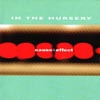 Most of the time, the original material from twin brothers Klive and Nigel Humberstone (with the occasional help of Dolores C. on vocals) is as close to perfection as possible: dream-like neo-romanticism with classical elements, passionate and sometimes even a bit too ethereal for the 'real world'. It's the kind of music to cherish for special moments which come less frequently as this music deserves. I was curious when I first heard about this remix project.
Most of the time, the original material from twin brothers Klive and Nigel Humberstone (with the occasional help of Dolores C. on vocals) is as close to perfection as possible: dream-like neo-romanticism with classical elements, passionate and sometimes even a bit too ethereal for the 'real world'. It's the kind of music to cherish for special moments which come less frequently as this music deserves. I was curious when I first heard about this remix project. 
